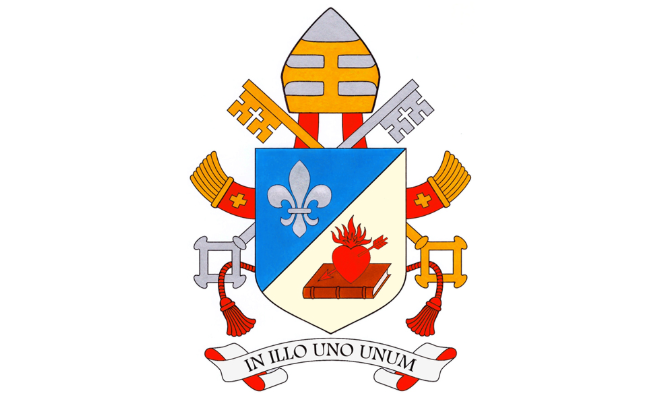A New Era For The Vatican: Embracing Augustinian Values Under Pope Leo XIV

Introduction: A New Era for the Vatican
Pope Leo XIV, fresh off his Augustinian training, seems ready to tackle the modern-day circus that is the Catholic Church. You know, being an Augustinian means he’s not just the Pope; he’s part of a clique that emphasizes community, spirituality, and, let's face it, a dash of drama—perfect for navigating the Holy See's latest headlines. With Leo at the helm, expect a few reforms; perhaps they'll embrace some Augustinian principles of turning inward for spiritual renewal while outwardly working to redeem the Church's reputation (History).
Understanding the Augustinian Order
The Augustinians, those timeless purveyors of wisdom, were founded in the 13th century under the auspices of the “Rule of St. Augustine.” Organized around community living, they find meaning in a colossal dose of prayer and a sprinkling of scholarship. Their motto? “Love and live in harmony,” which suggests that while you might tolerate each other’s quirks, a little introspection helps (Catholic Online).
Who are the Augustinians?
The Augustinians chose a life path encouraging them to live in harmony while pursuing truth and community. They invest in education and understand the importance of expertise. Their approach isn't just about filling their weekly good deed quota; it’s about a lifelong commitment to service wrapped in humor and grace (Augustinians).
Core Beliefs and Practices
The Augustinian order emphasizes community life and the pursuit of truth. They abide by rules embodying personal responsibility and virtue, aiming to practice Stoic principles while navigating life’s absurdities. Their approach blends serious philosophical inquiry with a healthy dose of wit, as they counsel against selfishness and encourage communal growth (NIH).
St. Augustine: The Figure Behind the Order
St. Augustine, born in 354 CE, was a philosopher and theologian whose tumultuous life path is both relatable and transformative. His work, especially *Confessions*, offers insights into his struggles with sin, ultimately leading to profound theological contributions that paved the way for the Augustinians (Britannica).
Early Life and Conversion
Augustine's early life was marked by hedonism and a struggle with faith. His rebellious moments and philosophical journey culminated in his dramatic conversion, ultimately shaping his theological legacy. His story is a template of personal struggle leading to spiritual triumph (Stanford Encyclopedia of Philosophy).
Contributions to Christianity
Augustine's influence extends across various facets of Christianity. His thoughts on grace, free will, and the theological controversy surrounding sin are central discussions even today. By questioning societal norms of his time, he crafted a framework highlighting the personal journey toward faith and understanding (Augustinian Philosophy).
The Unique Characteristics of the Augustinians
The Augustinians are not just about wearing robes; they mix a contemplative lifestyle with active engagement in the world. They encourage deep philosophical discussions while embracing community living. Their ideal is to embody unity of purpose while humorously addressing life’s absurdities (Augustinians Official Website).
Distinctive Traits of the Augustinian Order
Fundamentally, the Augustinians emphasize the balance of thought and action, often enshrined in their rich academic traditions. They instill a belief in social responsibility, compelling members to engage with their communities in tangible ways that spark intellectual and spiritual growth (Your Website).
Symbolism of the Order
The Augustinian emblem features a heart within a flame, which signifies love and transformation, reminding members of their commitment to both personal sacrifice and divine service. It’s a complex symbol reflecting the dual call of their mission—intellectual rigor combined with profound love (Catholic Answers).
The Augustinians' Role in Church History
The Augustinians have played a vital role in Church history by contributing to education and philosophy. They were instrumental during significant historical moments, including the Reformation, where they found themselves grappling with mixing social change and traditional beliefs (Vatican News).
Missionary Expansion
Today, the Augustinians engage in extensive missionary work worldwide, tackling issues like poverty and education. These initiatives embody their commitment to social justice, all while navigating the complexities of modern-day spirituality and community outreach (Their Outreach Programs).
Key Historical Figures
Key figures like Martin Luther and St. Thomas of Villanova show the diversity of impactful thought within the Augustinians. Their blend of grace and charity continued to influence Christian faith and practice into modern times (Augustinian Legacy).
The Implications of Pope Leo XIV Papacy
Pope Leo I 14th stepped into his role during a turbulent time, balancing tradition with a need for reform. Striving for a Church that embraces moral clarity, his Augustinian upbringing aids in addressing the myriad of contemporary challenges facing the Vatican (Britannica).
What To Expect From the First Augustinian Pope
Expectations from Pope Leo XIV include a blend of introspection and outreach, likely fostering a new spirit of communal solidarity within the Church. With a focus on social issues, his tenure may usher in a pioneering approach to modern Catholicism that resonates with Augustinian values (History).
Intellectual Contributions
The Augustinians’ intellectual legacy is profound, influencing many aspects of Western thought and spirituality. Their teachings continue to inspire contemporary debates on ethics and personal responsibility, showcasing their lasting importance in the religious context NIH.
Conclusion: A Pivotal Moment for the Catholic Church
In examining the Augustinian Order and Pope Leo XIV approach, we find a significant junction where tradition meets modernity. As the Church navigates its future, invoking Augustinian principles of community and introspection could lead to a more engaged and relevant faith practice for a contemporary audience.
Call to Action: Stay Informed
If you're intrigued by the blend of Augustinian thought and modern challenges, stay tuned for more updates and insights. Explore how these historical roots can guide our current understanding of faith and community here.
Sources
- Augustinians - About Our History
- Britannica - Pope Leo X
- Britannica - Saint Augustine
- Catholic Answers - Augustinians
- Catholic Online - Saint Augustine
- History - Pope Leo X
- Their Outreach Programs
- Vatican News - Augustine’s Legacy
- NIH - Augustinian Spirituality
- Stanford Encyclopedia of Philosophy - Augustine's Writings